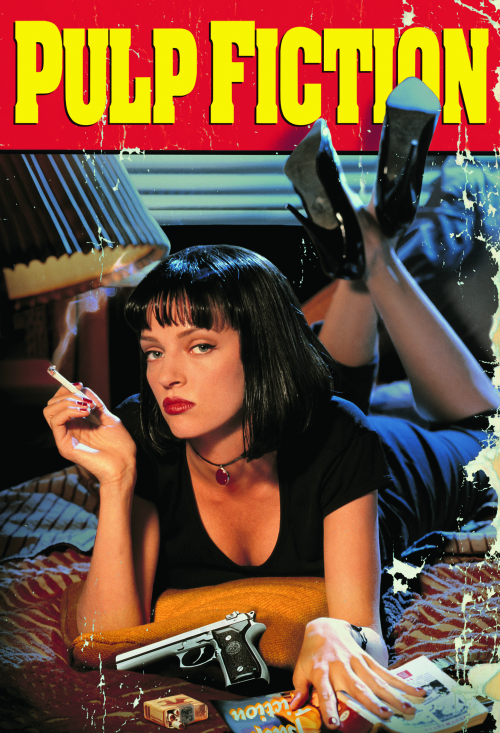Pulp Fiction
- 21 Nov 2014
- Quentin Tarantino's important and influential movie turns 20. Its blend of the spectacular and the ordinary, with its nonlinear progression, memorable dialogue, and charismatic performances have made it iconic.

I wanted to write this post to coincide with the 20th anniversary of the US theatrical release. I thought it was in November, not a full month and a bit earlier (14 Oct 1994). In any case, Quentin Tarantino made headlines last week when he said that he’d like to retire after his tenth movie. Assuming that he follows through, he’ll make two more movies after his coincidentally named Hateful Eight. Pulp Fiction is his second and his best movie.
This movie has been analyzed ad nauseam, but here’s a unique analysis, as seen by a member of an advanced and alien race.
Basically, Pulp Fiction is a trilogy of interconnected tales that follow crooks in LA. The characters are subject to amazing coincidences and serious consequences, but their decisions still influence their fates. Simply put, in a world of chance is the power of choice.
The main tale, which bookends the movie, is the perfect example. Jules is a cold, even casual, hitman who is somehow unharmed by a barrage of gunshots. He has an existential-theological epiphany that leads him to abandon his ways and spare a would-be robber. The other two stories also revolve around chance events that lead to problems for characters; they arguably have little choice, but they do in fact choose to solve these problems.
Pulp Fiction works as a straight-up, gangster-mishap movie, but I’ve always seen it as being a tale of redemption wrapped in entertaining conversations and stylized violence. There’s Biblical references, both obvious and subtle, but even without them, I think there’s lasting appeal in Jules’s struggle to make sense of his place in the world and his effort to atone for his actions.
Besides being enjoyable and memorable, the movie endures because of its unconventional elements and underdog history. Its chronology, pacing, dialogue, language, violence, soundtrack, and cast are atypical of movies at the time. Breakthrough success at the Cannes Festival catapulted this anti-blockbuster and its relatively unknown director into the spotlight. It’s every hipster’s dream.